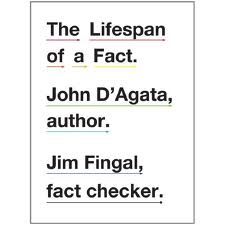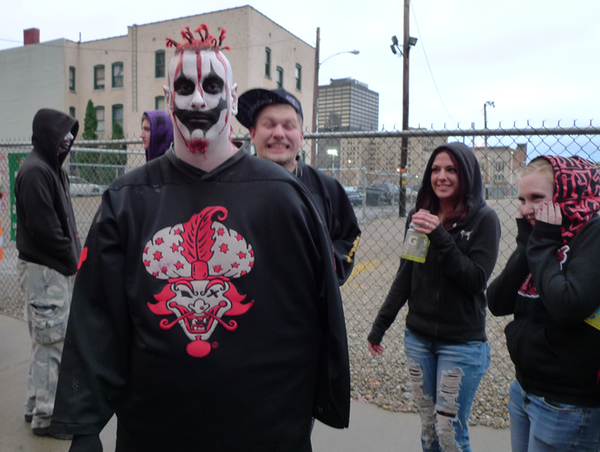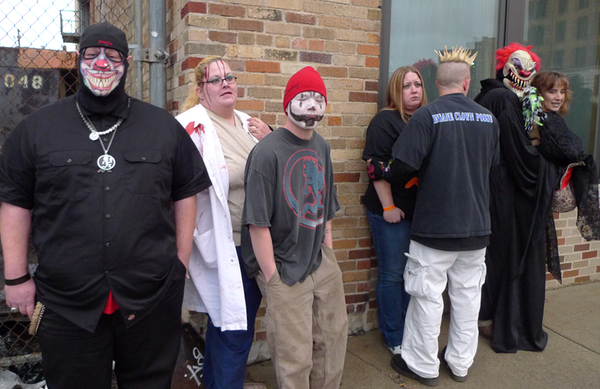One of the best thing about this interval between the holidays is the lack of pressure, and freedom to do what I want, which today has meant a) eating tortilla chips with guacamole and b) reading. I do too much of the former and too little of the latter, and both are my own damn fault, but let’s not get into the self-laceration, yet. Let’s keep this to what it is, a breezy update on the two books I’ve completed in the last few days.
 The first, “The Lifespan of a Fact,” I recommend highly, mostly to my journalist friends and anyone who writes for a living or a hobby, but really, to anyone who’s ever contemplated the difference between facts and truth. The book consists of the seven years’ worth (condensed and, to some extent, recreated) of correspondence between John D’Agata, writer, and Jim Fingal, fact-checker. D’Agata has written an essay about the suicide of a teenage boy in Las Vegas, although, being a capital-W Writer from the get-go, it’s really about a lot of other things. (Every story is really about a lot of other things, but D’Agata is on the muscle about his larger purpose — to create art, compose lyric sentences and riff on life and death and Vegas and so on. His essay was originally written for Harper’s, but rejected for factual errors, which is where Fingal evidently entered the picture. (It was later offered to The Believer, a magazine where Fingal worked.)
The first, “The Lifespan of a Fact,” I recommend highly, mostly to my journalist friends and anyone who writes for a living or a hobby, but really, to anyone who’s ever contemplated the difference between facts and truth. The book consists of the seven years’ worth (condensed and, to some extent, recreated) of correspondence between John D’Agata, writer, and Jim Fingal, fact-checker. D’Agata has written an essay about the suicide of a teenage boy in Las Vegas, although, being a capital-W Writer from the get-go, it’s really about a lot of other things. (Every story is really about a lot of other things, but D’Agata is on the muscle about his larger purpose — to create art, compose lyric sentences and riff on life and death and Vegas and so on. His essay was originally written for Harper’s, but rejected for factual errors, which is where Fingal evidently entered the picture. (It was later offered to The Believer, a magazine where Fingal worked.)
The two clash from the very first sentence, much of which Fingal can’t verify. D’Agata tells him to stop bugging him about this shit — it isn’t important, it doesn’t matter, anyway he’s an essayist, not a journalist, and he takes liberties, and who cares whether there really were 34 strip clubs in Las Vegas at the time, and whether the tic-tac-toe game with the chicken happened on this day or another one? Fingal does, and to his credit, doesn’t allow this University of Iowa professor to intimidate him. And so the process begins. Fingal isn’t editing; that’s someone else’s job. His task is to take every single statement presented as fact and verify whether it actually is.
A college classmate of mine did this job for a while in New York City; it’s a traditional entry-level position in the prestige-magazine trade, and it is thankless. (The fictional narrator of “Bright Lights, Big City,” the thinly veiled autobiographical voice of Jay McInerney, did the same job at a magazine similarly veiled, but obviously The New Yorker.) She was paid a poverty-level wage to take the hallowed prose of writers like Tom Wolfe and Christopher Buckley — to name but two of the unlisted phone numbers in her Rolodex — and peck at it like a chicken. If Wolfe wrote that the morning of July 2, 1973 was hot and rainy in Anniston, Ala., she consulted almanacs or weather stations to make sure it wasn’t really unseasonably cool under a high-pressure system. She called interview subjects to verify they had Remington bronzes on the credenza behind their desks, as described in the text. Were you wearing a navy suit with a pocket square that day? And so on. The only thing she didn’t fact-check were quotes, because people invariably got cold feet when confronted with their own words and tried to back out of them.
It’s a good job for a beginner because it teaches you research skills, and I imagine it also teaches you how to hold your own when some Bigfoot writer, confronted with his own laziness or lousy reporting, pushes back. In “The Lifespan of a Fact,” D’Agata pushes back again and again and again, but then, he gives Fingal so very much to work with. He seems to think that, by declaring he isn’t a journalist, he can do anything he wants with the building blocks of reality, those pesky facts. He changes the name of a school because he thinks the correct name is stupid. He changes the color of a fleet of dog-grooming vans from pink to purple because he needed a two-syllable beat in the sentence. When challenged on these points, he compares himself to Cicero, among others.
Before long, the insults are flying, and Fingal, who grabbed my early sympathy just by getting such spectacular rises out of D’Agata, is becoming something of a pedant himself. There’s a long section on linguistics and quibbles over whether a slot machine called Press Your Luck is named after a short-lived game show or the expression of playing out a winning streak. Was the carpet purple or red? Was Roxy’s Diner on the left as the boy passed the casino’s guest services desk, or down the hall on the left?
It all reaches a crescendo where the two are fighting over the nature of memoir as interpreted by James Frey (D’Agata, you should not be surprised to know, is on Team Frey), the nature of the essay as interpreted by D’Agata, and whether it matters that the kid leaned on a railing that was either four feet high or three feet seven inches high.
By the end, you don’t know whether to laugh or cry. D’Agata’s was a powerful essay, but it’s a more powerful book.
On edit: I’m thinking I’m being too hard on D’Agata here. Part of me sympathized with him, because I’ve writhed under a too-tight editing thumb myself more than once — which, as I explained above, is different from fact-checking. There are editors who simply cannot leave a fact unattributed to a higher authority, and will happily lard a piece up with clunky phrases, destroying whatever narrative effect the writer might be trying for. One of my favorite illustrations of this came from a colleague who was doing a tick-tock piece on a spree killer. He wrote that the guy stopped at a local grocery and passed two bad checks. The editor asked where he got that information. From the grocery-store owner, he said, who still had the checks (they’d been returned, after all), and showed them to him. The editor insisted on inserting “police said” even though the police had said nothing of the kind, out of some knee-jerk fear that a guy sitting in Riker’s Island on multiple felony murder charges might sue us for libel or something. So I’m sympathetic to rhythm and flow in a piece of non-fiction writing. I just don’t think you have to change the color of a truck to get it. End edit.
All of this interests me because I was once seated at a wedding next to an executive from a large company whose name you would recognize. Some years earlier, another company this man worked for had allowed a famous writer, whose name you would also recognize, to embed in their plant for a book he was writing. The book was published, and contained an anecdote about a close call the writer had had with his personal safety on company property. He wrote that he had been so rattled a particular foreman (whom he named) had taken him to his car and given him his first taste of homemade whiskey.
The executive said he’d confronted the writer later, telling him that he remembered the writer’s first taste of homemade whiskey, because he, the executive, had been there: It had happened after work, off company property, outside a bar, in fact. He was upset because the business could be dangerous, and even bringing alcohol onto company grounds — much less nipping out during work hours for a shot — was a firing offense. The writer, he said, shrugged and basically said it made the story better, the way he told it. It was a bit of harmless embroidery in the service of making the book more readable. And it was, until there was a fatal accident at the company sometime later, and during negotiations with the survivors, the lawyers produced the book and said, “So, you allow your employees to drink during work hours?”
All this by way of saying that facts seem unimportant when you’re concerned with getting a two-beat note at the end of a sentence, but ultimately, they’re very important. And whether you’re a journalist or essayist, they deserve respect.
Book two is “Capital” by John Lanchester, the one on the nightstand, which I’m finishing now. It seems to be taking forever, even though I’m enjoying it quite a lot. A look at the residents of one block of Pepys Road in London, it traces events in a dozen or more lives in 2008, leading up to you-know-what. The throughline is a series of unsettling communications — postcards, a website, graffiti, dead birds — from an anonymous party or parties, proclaiming a simple message: “We want what you have.” I had high hopes for a mystery with mounting tension, but the book is more a Dickensian novel of manners and social mores at a particular point in time. And while it hasn’t made me think hard the way “The Lifespan of a Fact” did, it has been as delicious as a Christmas cookie.
(If you choose to buy either of these, as always, you’re welcome to use the Kickback Lounge to make your purchase.)
With that, I return to previously scheduled light duty, and I hope you are, as well. The snowstorm looks like it’s just about over, and I have to go fire up the blower.









